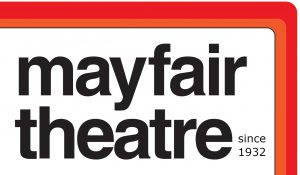The Ottawa Citizen is gay for Stonewall Uprising
andrewlapointe on August 22, 2010
Stonewall Uprising is a new documentary about the growing gay rights movement in the late 60s that included a major riot outside the Stonewall, a New York City gay bar that was raided by police until one night in the summer of 1969, when its patrons refused to be thrown out and arrested because of their lifestyle.
This revealing film premieres Friday August 27 at 9:30pm, and also plays August 28 and 30.
Here’s Jay Stone’s fabulous review from the Ottawa Citizen:
Closeted life before Stonewall
Documentary captures a time when being gay was illegal
STONEWALL UPRISING ***
Directed by: Kate Davis and David Heilbroner
Rating: adult themes
Playing at: Mayfair Theatre, Aug. 27, 28, 30
Police raids were common in those days: homosexuality was illegal in every state but Illinois, and it was widely considered to be a “mental defect” that could be cured by electroshock therapy, sterilization, castration, or lobotomy. At Atascadero State Hospital in California — “the Dachau for queers,” they called it — homosexuals could be treated with a drug that made them feel like they were drowning. It was chemical waterboarding.
No one seemed to care much about these things. In the documentary Stonewall Uprising, a record of the riots that followed the 1969 raid (and based on the book Stonewall: The Riots That Sparked the Gay Revolution, by David Carter), there are excerpts from TV shows of the day, such as a CBS Reports investigation called The Homosexuals, in which Mike Wallace says, “The average homosexual, if there be such, is promiscuous. He is not interested in, nor capable of, a lasting relationship like that of a heterosexual marriage.”
A 1951 public service announcement called Boys Beware dramatizes the seduction of innocent young Johnny by an older man who shows him pornographic pictures to convert him to the cause.
But on that day in 1969, something strange happened. Instead of going along with the raid, the gay men at the Stonewall fought back, eventually forcing the police to barricade themselves in the bar. Several days of rioting and arrests followed, and the result — in the words of a Village Voice journalist named Lucian Truscott IV — was “the Rosa Parks moment” in the fight for gay rights, an act of resistance as important as the day when a black woman refused to give up her seat on an Alabama bus.
“That night, the police ran from us,” Truscott says. “And it was fantastic.”
Stonewall Uprising is something of a scattershot document, mostly because there is little public record of what happened that night: it wasn’t deemed newsworthy enough to film, and newspaper reports were sketchy and buried on inside pages. Filmmakers Kate Davis and David Heilbroner interview dozens of witnesses and participants to flesh out what happened, and while the talking heads paint a vivid picture of chaos in the Village, we never get to know the people well enough to form a connection. The empathy is mostly with the cause itself.
Still, that makes for interesting viewing, and while Stonewall has been examined in previous documentaries (Before Stonewall in 1984; After Stonewall in 1999), Stonewall Uprising fills in the middle nicely. Most engaging is its examination of life of the 1950s and 1960s, when young men and women came to New York to meet other gay people and to actually have sex with some of them. They had no access to hotels, however, so this often took place in public washrooms or parked meat trucks, another popular spot for police raids. “There was no such thing as ‘being out,’ ” says author Eric Marcus. “There was no ‘out.’ There was just ‘in.’ ”
And while there is frightening testimony about how gays were hunted down to be beaten up, or worse, the scariest moment takes place in a 1967 TV interview with a gay activist. He says only radical gays want such extreme rights as adoption and marriage, adding that, while he had homosexual experiences when he was younger, he doesn’t do that any more because it’s not his “cup of tea.” It plays like a sad combination of fear and denial, just like a lot of it was for gay people before Stonewall.

